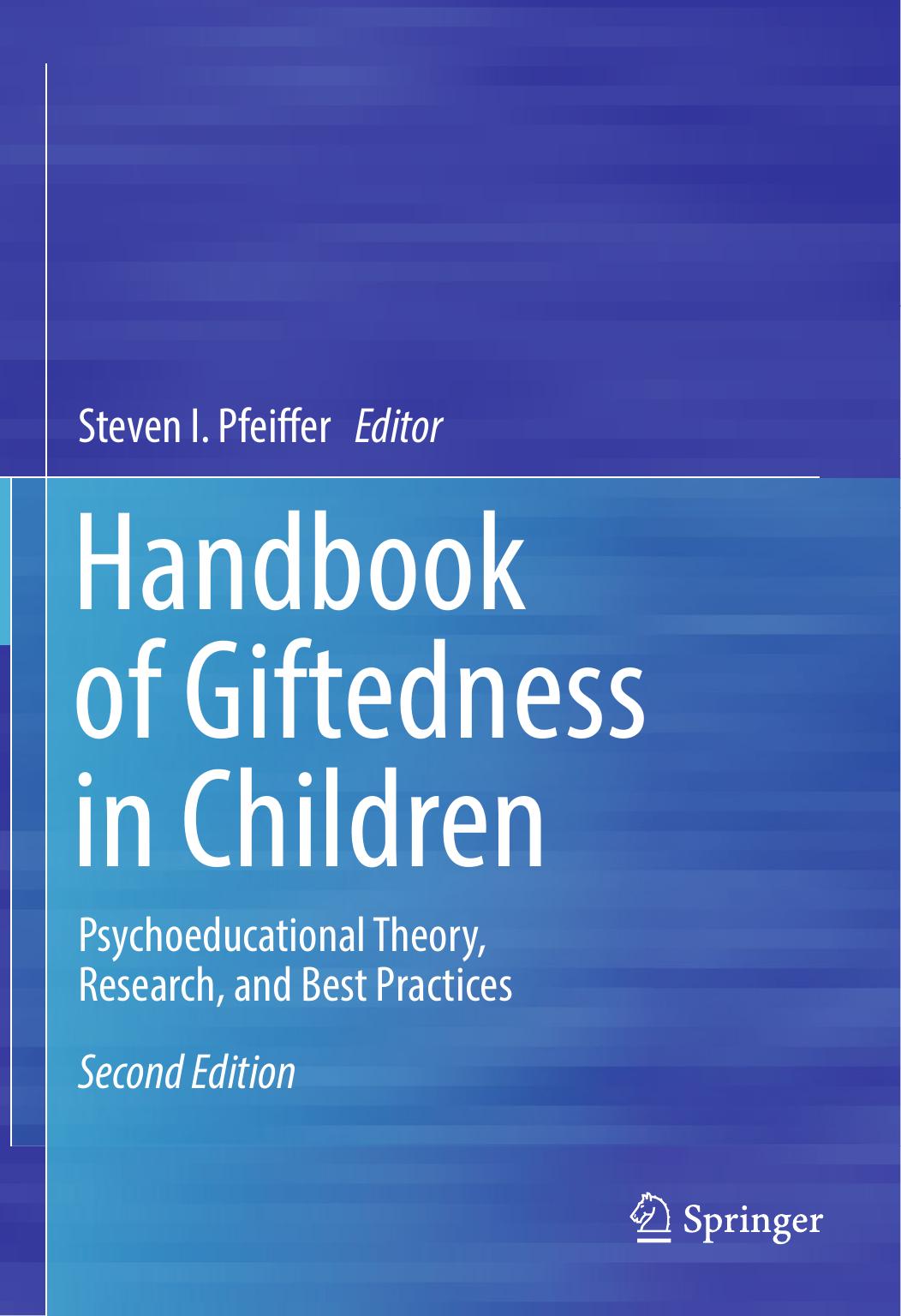Handbook of Giftedness in Children by Steven I. Pfeiffer

Author:Steven I. Pfeiffer
Language: eng
Format: epub, pdf
Publisher: Springer International Publishing, Cham
Assessment Versus Selection for Gifted Programs
The requirements for acceptance to programs for the gifted has been the driving force behind testing the gifted for far too long. This has led to questionable practices in assessment. There is a world of difference between identifying gifted children for programs (you are either in or out) and the assessment of children with special needs. Following a college admission model, gifted children undergo testing, but the test data are never used to determine the child’s program. In special education, the purpose of testing is to collect information about the child’s strengths and weaknesses that will be used as a basis for programming. This is equally important for the gifted (VanTassel-Baska & Baska, 1993). There is frequently no relationship between the measure used for determining placement in a gifted program and the actual characteristics of the program. A nonverbal measure may make the gifted program more accessible to children who have other than verbal gifts, but if the program is highly verbal, the children will not succeed. There needs to be a match between criteria for acceptance and the type of program offered.
The misuse of IQ tests in the selection of students for special programs and schools has obscured the true value of assessment. Some private schools offer IQ tests for a minimal fee. Parents receive a printout of scores with no interpretation. The child cannot be tested again on that instrument for a full year. The sole purpose of the testing is to see if the child qualifies for admission. If the child is accepted, the IQ test gets filed in a drawer, never looked at again to glean information about how the child learns best. It is puzzling why parents would pay a few hundred dollars for minimal testing to determine if their child can get into a school for the gifted that costs more than $20,000 per year. Before making that kind of investment, wouldn’t they want to know as much as possible about the needs of their child to see if the school is a good fit rather than just if the child qualifies?
Giftedness in one state does not guarantee that designation in another state. Some school districts do not acknowledge children who are identified as gifted in other school districts. Some districts determine who is gifted by the number of children they feel is needed to fill a classroom. Children who are near-gifted are placed in the class to warrant hiring a teacher. With this logic, a child could be gifted in one school in the district, but not in another. Can you imagine if such guidelines were used in special education? “We don’t have enough kids to fill this special education class so we are going to drop you into the class. You’re close enough.” Schools would be in court within the week. Identification of a child with special needs has serious implications. Methods of identifying the gifted are frivolous.
Educators frequently say, “We can’t afford individual IQ tests.” Group tests or brief screeners are considered sufficient.
Download
Handbook of Giftedness in Children by Steven I. Pfeiffer.pdf
This site does not store any files on its server. We only index and link to content provided by other sites. Please contact the content providers to delete copyright contents if any and email us, we'll remove relevant links or contents immediately.
| Administration | Assessment |
| Educational Psychology | Experimental Methods |
| History | Language Experience Approach |
| Philosophy & Social Aspects | Reform & Policy |
| Research |
The Art of Coaching Workbook by Elena Aguilar(50041)
Trainspotting by Irvine Welsh(20947)
Twilight of the Idols With the Antichrist and Ecce Homo by Friedrich Nietzsche(18267)
Fangirl by Rainbow Rowell(8759)
Periodization Training for Sports by Tudor Bompa(7890)
Change Your Questions, Change Your Life by Marilee Adams(7322)
This Is How You Lose Her by Junot Diaz(6402)
Asking the Right Questions: A Guide to Critical Thinking by M. Neil Browne & Stuart M. Keeley(5321)
Grit by Angela Duckworth(5263)
Red Sparrow by Jason Matthews(5168)
Paper Towns by Green John(4754)
Room 212 by Kate Stewart(4705)
Ken Follett - World without end by Ken Follett(4412)
The Sports Rules Book by Human Kinetics(4047)
Housekeeping by Marilynne Robinson(4017)
Double Down (Diary of a Wimpy Kid Book 11) by Jeff Kinney(3877)
Papillon (English) by Henri Charrière(3872)
The Motorcycle Diaries by Ernesto Che Guevara(3755)
Exercise Technique Manual for Resistance Training by National Strength & Conditioning Association(3755)
